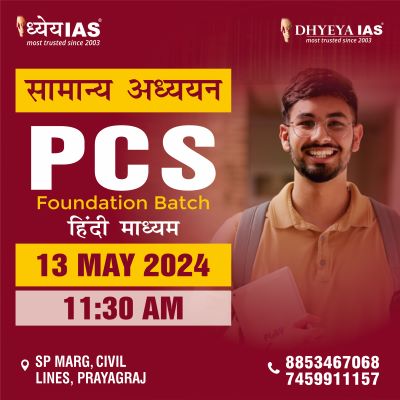Current Affairs Brain Booster for UPSC & State PCS Examination
Topic: Demand of Sixth Schedule for Arunachal Pradesh

Why in News?
- Several community-based organizations (CBOs) and student unions in Arunachal Pradesh urged the government to bring the entire state under the ambit of the Sixth Schedule.
- The organizations also demanded that a high-level expert committee be formed to look into demand for two autonomous councils - Mon Autonomous Region (MAR) and Patkai Autonomous Council (PAC) in the state.
Demand for Sixth Schedule
- The Frontier State bordering Bhutan, China and Myanmar is under the Fifth Schedule that “does not provide special rights for the indigenous communities” unlike the Sixth Schedule or Article 371 (A) of the Indian Constitution.
- Sixth Schedule allows constitution of Autonomous District Councils in Assam, Meghalaya, Tripura, and Mizoram to safeguard the rights of tribal population.
- The Sixth Schedule currently includes 10 autonomous district councils in four northeastern States — Assam, Meghalaya, Mizoram and Tripura.
- Nagaland, on the other hand, is governed by Article 371 (A), which says that no Act of Parliament shall apply in the State in several areas unless the Nagaland Assembly so decides by a resolution. These include administration of civil and criminal justice involving decisions according to Naga customary law and ownership and transfer of land and its resources.
- Reasons cited for the demand are:
- Sixth Schedule would provide special rights to all Arunachalees on matters of religious and social practices, customary law, land (ownership, transfer and control) etc under the India Constitution.
- The Statehood Act of 1987 more particularly Article 371(H) is technically defective as it provides no special rights for the indigenous people of the state.
- Yardstick to measure the level of economic development and progress including socio-cultural preservation and development in a multi-tribal state like Arunachal is almost the same for every region.
About Sixth Schedule
- The Sixth Schedule consists of provisions for the administration of tribal areas in Assam, Meghalaya, Tripura and Mizoram, according to Article 244 of the Indian Constitution.
- Passed by the Constituent Assembly in 1949, it seeks to safeguard the rights of tribal population through the formation of Autonomous District Councils (ADCs).
- ADCs are bodies representing a district to which the Constitution has given varying degrees of autonomy within the state legislature.
- The governors of these states are empowered to reorganise boundaries of the tribal areas. In simpler terms, she or he can choose to include or exclude any area, increase or decrease the boundaries and unite two or more autonomous districts into one.
- They can also alter or change the names of autonomous regions without a separate legislation.
CAB and Sixth Schedule
- Citizenship (Amendment) Bill, 2019 aims to grant citizenship to Hindus, Sikhs, Buddhists, Parsis, Jains and Christians from Afghanistan, Pakistan and Bangladesh who sought shelter in India following religious persecution. Those seeking citizenship will have to prove that they entered India on or before 31 December 2014.
- The tweaked CAB states that areas under the Sixth Schedule are exempted from its purview, which means non-Muslim refugees from the three countries who are granted Indian citizenship will not have any land or trading rights in the autonomous regions.
- If the bill is passed in both Houses of Parliament with all the provisions of exemption, the Sixth Schedule will play the primary role in these regions for safeguarding the rights of tribal population and preventing influx.
- This essentially means the refugees can neither reside or settle in the 10 autonomous districts, nor enjoy benefits extended to the tribals, even if they are provided with Indian citizenship. Further, the laws made by ADCs with the powers bestowed upon them by the Sixth Schedule will not be scrapped by the CAB.
























